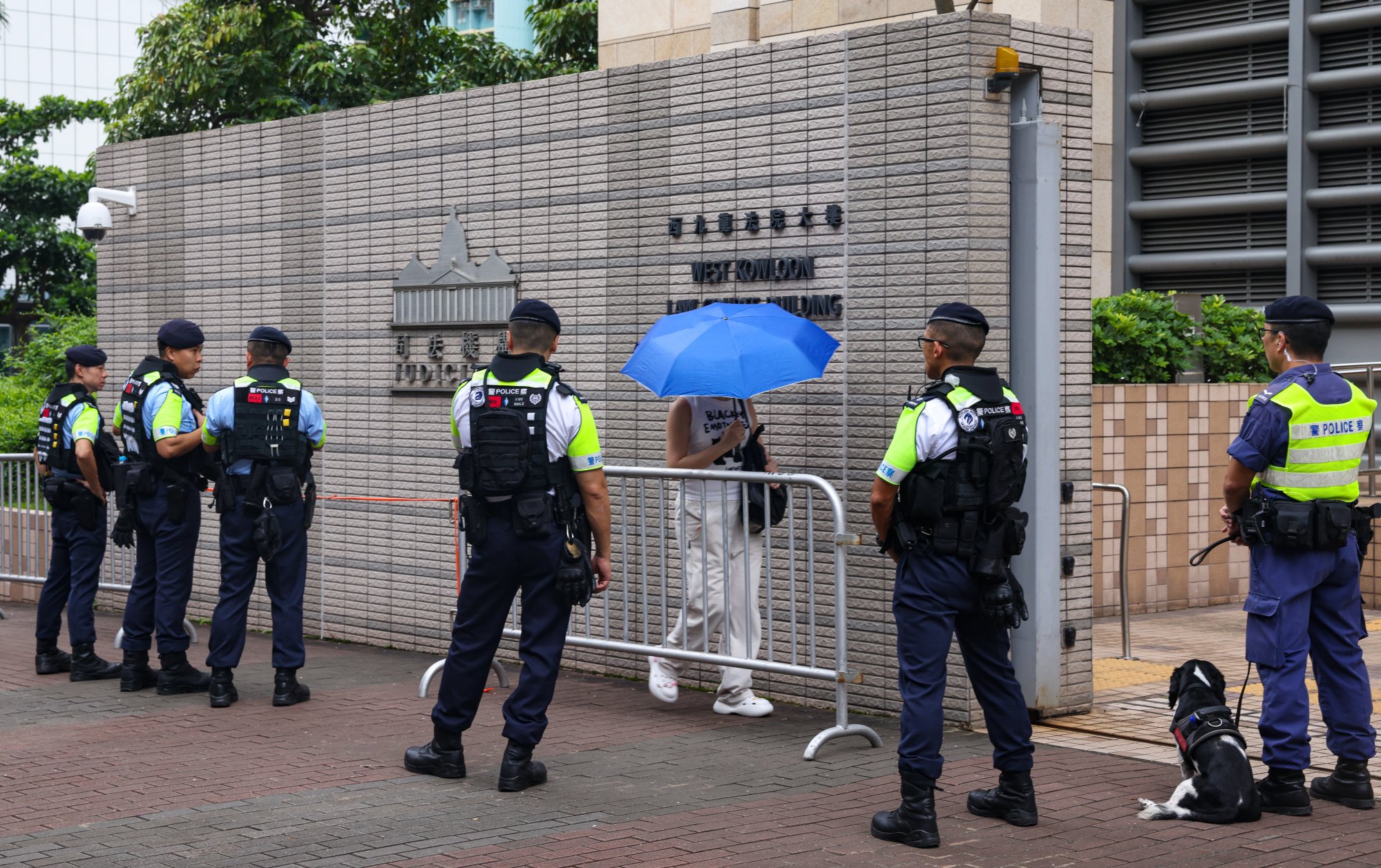
Hong Kong 47: activist convicted of subversion says he’s ‘enthusiastic’ to serve state in leniency plea
- Lawyer highlights Michael Pang’s ‘continuous patriotic affiliation’ and ‘enthusiasm to serve the state’ as evidence in leniency plea
A former Hong Kong district councillor awaiting sentence for conspiracy to subvert state power has sought leniency by pointing to his “continuous patriotic affiliation” and employment with a pro-Beijing think tank as evidence of his positive character.
A legal counsel for Michael Pang Cheuk-kei asked for a lighter sentence at West Kowloon Court on Wednesday, highlighting the defendant’s ignorance of the Beijing-decreed national security law.
She also said Pang had been making remedial efforts to “safeguard national security” after his arrest for his role in an unofficial legislative “primary” election in July 2020.
But the three presiding High Court judges said Pang’s submission generated more questions than answers about his motives for trying to undermine the government. His equivocal stance could instead indicate his opportunistic nature, they added.
Pang is among 45 opposition politicians and activists convicted in the city’s largest national security trial for trying to secure a controlling majority in the Legislative Council through the 2020 unofficial primary, in a bid to cast an indiscriminate vote against the government’s budget and force then leader Carrie Lam Cheng Yuet-ngor to step down.
The court found the former Southern District Council member guilty partly based on the “strong determination” he displayed to confront authorities, such as by describing them as the “enemy” and “tyranny” and calling for all-out resistance against the Chinese Communist Party during his election campaign.

Pang’s counsel, Money Lo Mun-yi, highlighted her client’s “continuous patriotic affiliation” and “enthusiasm to serve the state” in support of his “positive good character”.
She said Pang had been employed by the Hong Kong Basic Law Foundation since May 2022 to promote the city’s mini-constitution and its “one country, two systems” governing principle.
The court heard the foundation’s general secretary, Simon Hau Suk-kei, was also in court to demonstrate his support for the accused.
Lo added Pang was also keen on helping the city’s youth develop business opportunities in the Greater Bay Area.
But Mr Justice Alex Lee Wan-tang questioned the relevance of Pang’s current employment which he took up only after committing the present offence.
He said the defence’s portrayal of Pang was contrary to the court’s findings and the “radical” and “very extreme” language he used against the nation before.
“How can we see any consistency in the behaviour of your client apart from saying that he was in fact an opportunist?” the judge said.
Fellow judges Andrew Chan Hing-wai and Johnny Chan Jong-herng suggested the ex-politician might have simply sought to exploit the benefits of his work affiliation in sentencing.
“What he said during the election campaign and the offence period is still fresh in our minds,” Justice Johnny Chan added.
But Lo insisted the admiration for Pang shown in the mitigation letters written by those close to him was a genuine reflection of his true character.
“I cannot twist how I understand Pang Cheuk-kei. I have to be truthful,” the lawyer stressed.
Lee replied: “We can see you’ve tried very hard to say everything you can.”
The court will start hearing pleas of mitigation from six other defendants, including activist Joshua Wong Chi-fung, when proceedings resume on Friday.
The court has heard submissions from lawyers representing 11 convicted defendants, including legal scholar and primary organiser Benny Tai Yiu-ting.
The national security law provides for a three-tier sentencing framework, with the most serious offenders liable to at least 10 years in jail for subversion.
